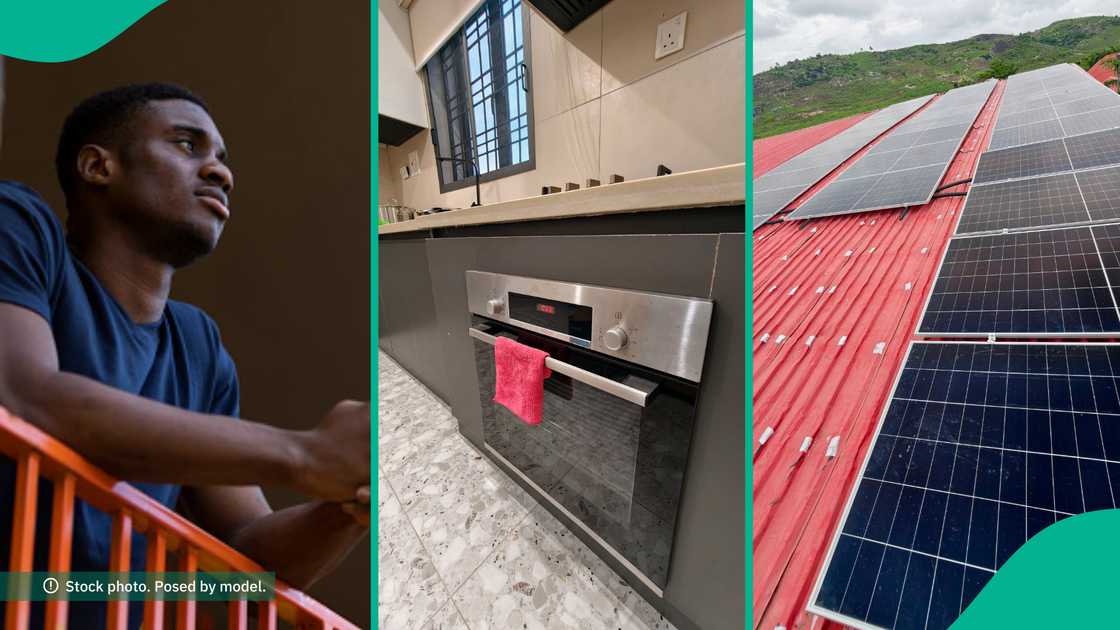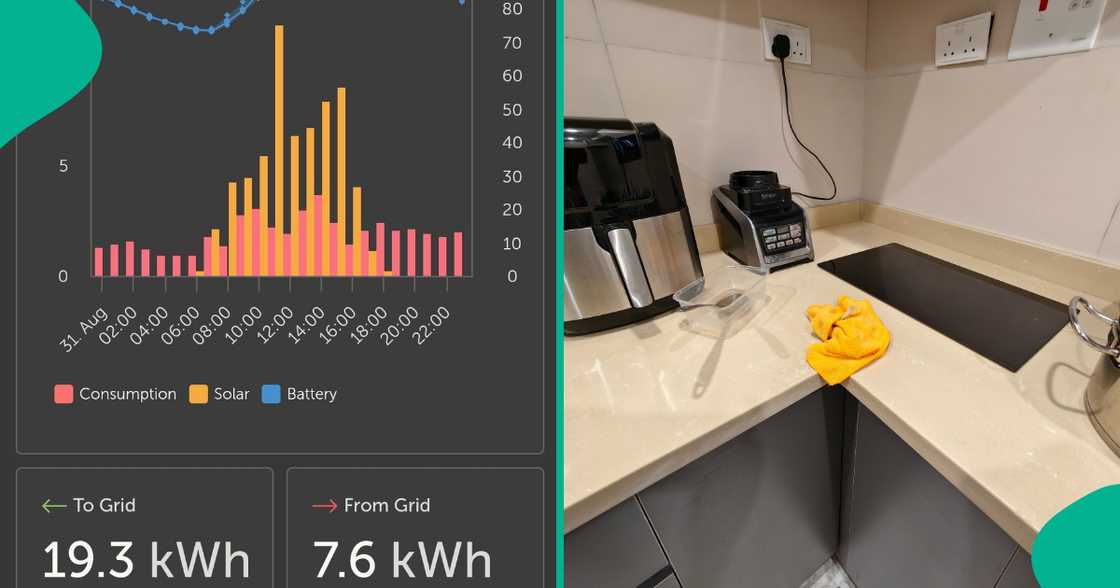"I Wasn't Paid": Man Installs Solar that Powers Everything in his House, Gives Electricity to NEPA
- A Nigerian man who generated more than 60 kWh from his solar setup fed back 19 units of electricity to the national grid
- The solar expert added that his inverters have a protection feature that allows them to handle exporting electricity to the grid well
- Many people, unaware of NERC's law on power generation, wondered why he did not supply his neighbours with the excess electricity instead
A Nigerian man passionate about green energy has shared an update about the solar setup he built for his new home.
In an earlier post, the man mentioned how his solar energy would power 5 ACs, 3 water heaters, an electric oven, an induction cooker, a microwave, and a freezer.

Source: Twitter
Going off-grid with solar energy
Quoting one of the posts in his thread, @bigbrovar said that he did something different with his solar installation by redirecting excess power from his large setup to the national grid.
He rated the power he pushed out to PHCN at over 19kWh (19 units). He mentioned that he was not, however, paid for the electricity.
When asked if it was safe to push electricity from his solar back to the grid, the DIY solar expert said:
"So far so good it hasn't back fired. I am yet to check my meter.. some meters are known to switch to tempered mode when you back feed.. some actually read forward as they read the feed-in as power used thus you pay for electricity you send to the grid."

Source: Twitter
Victron inverter with anti-islanding
He added that he uses Victron Multi hybrids, which come with inbuilt anti-islanding that protects against feeding power back to lines where there is a power cut, and officials are working on wires.
In response to one of the comments under his post, the man said that his neighbours probably used the electricity he exported to the grid.
See his post below:
Legit.ng compiled some of the reactions below:
@dreywandowski asked:
"Curious. How does this work? Do we need specialized inverters to achieve this?"
He responded:
"Yes you need an hybrid Inveter which can operate in off-grid and grid tied mode."
@lumide0b said:
"This is so hard for my Nigerian brain to comprehend."
@A_ustinBob asked:
"Can you create a separate line to feed say a neighbor? Just thinking."
@TosinNeezer said:
"This looks good, I believe you can start an energy startup based on this. It’s novel in Nigeria and you can scale this. Let me know when you start selling."
@AScully789 said:
"Lovely project but unless the discos are paying, hopefully it doesn't become a more common habit, so discos don't start expecting users to do their job."
@4khayr wondered:
"How about you supply your neighbours or that option isn't technically viable?"
@Kickflowdown said:
"Why not do the sensible thing by supplying your neighbors directly instead of wasting energy where it's not needed? Neighbors will pay if u can supply X amount of power daily."
Another solar user narrates experience
A solar 7Kva solar user, Ogundele Waliu, commended the man's setup and said going off-grid is a dream for many. He, however, said the setup cost of the system is high.
"I spent millions of naira setting up mine. An average Nigerian may not be able to afford the kind of system that could make them energy independent. Seeing a person achieving what the man did is laudable."
What NERC says about power distribution
According to the Nigerian Electricity Regulatory Commission (NERC), a person who distributes less than 100kW must apply for a permit or a license if it is higher.
"For very small projects below 100kW, only a simple registration with NERC is mandatory. However, an interested investor may voluntarily obtain a permit. The difference between a registration certificate holder and a permit holder is that while the latter enjoys exit compensation like larger systems, the former does not. To be qualified for a permit, however, the project must adhere to minimum network technical and safety standards."

Read also
Man who left N14.7 million in his Opay app shares screenshot of how much he met after one month
Nigerian man shares light with neighbours
Meanwhile, Legit.ng earlier reported that a Nigerian man who once made the news for selling his solar energy to his neighbour now has a new user plugged into his setup.
The man said that a new tenant who has just arrived at their compound is also feeding from his solar electricity at a fee.
Source: Legit.ng




